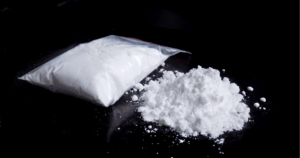Although Hydrocodone is bioavailable through insufflation, it is highly inadvisable to snort this opioid prescription.
Snorting Hydrocodone can not only lead to severe issues with the nasal pathways, but it is also a sign of a substance abuse issue.
Consumption of painkillers in this manner creates a short-lasting, intense high that increases the need to re-dose or even move onto harder drugs like heroin.
Read on to learn the dangers of snorting hydrocodone and opioid abuse, their short-term and long-term effects, withdrawal symptoms, and treatment options.

DANGERS LINKED TO SNORTING HYDROCODONE
When people snort hydrocodone (AKA Vicodin), they’ll feel an intense high faster than taking it orally. However, tablets aren’t supposed to be used in this manner. They should pass through the gastrointestinal system and not enter your bloodstream instantly or reach your nasal passages because they could irritate your nose, throat, and lungs.
In some cases, insufflation of hydrocodone can cause necrosis (death of tissue) of the nasal pathways and lyranx. Not only is this extremely painful and needs immediate medical attention, if left untreated could lead to death.
Moreover, some hydrocodone sold on the street may contain another opioid called fentanyl. Fentanyl is 50-100 times stronger than morphine, which means even a tiny amount can lead to overdose and death. If you have obtained hydrocodone from a source other than a medical professional, please do not consume it in any manner.
Not only does this method of consumption increase your risk of overdose and physical damage, it also increases your risk of becoming addicted to hydrocodone.
Physical Health Effects of Snorting Hydrocodone
Snorting hydrocodone can cause detrimental effects on the nose, lungs, and liver. First, you might experience necrosis, wherein nasal tissue is dying. This can result in a runny nose or long-lasting nosebleeds. You might also have a hard time eating or breathing regularly once there’s a tear or hole between the nasal septum and your mouth’s roof.
Another problem is lung damage. This happens because the nose hairs and mucus membranes cannot protect your respiratory system anymore. Hydrocodone snorting may also result in an immune system disorder called hypersensitivity pneumonitis. You may experience fever, dry cough, shortness of breath, and weight loss. It can also cause severe inflammation in the lungs and respiratory failure.
Hydrocodone snorting might also damage the liver with its substance, acetaminophen. Snorting the opioid frequently is called intranasal hydrocodone acetaminophen abuse. When there’s a high dose of hydrocodone, you may experience liver toxicity and injury. Complete liver failure may also occur.
Mental Health Effects of Snorting Hydrocodone
When you snort hydrocodone, your mental health may also be affected. For example, you may have reduced control over your emotions. You’ll have difficulty coming up with rational decisions. Moreover, pain receptors in your brain may be damaged, and memory loss may also occur.
Many people who abuse hydrocodone report feeling intense mood swings, ranging from extreme happiness to deep depression. They may also experience anxiety, paranoia, and irritability, which can make it difficult to maintain healthy relationships with family and friends.
Chronic hydrocodone abuse can also lead to the development of mental health disorders such as depression, anxiety, and post-traumatic stress disorder (PTSD). These conditions can be debilitating, affecting a person’s ability to function in everyday life.

DANGERS OF HYDROCODONE ABUSE
According to the Centers for Disease Control and Prevention (CDC), there were over 68,000 overdose deaths from opioid abuse last year. Individuals who are overdosing on hydrocodone may also experience:
-
- Vomiting
-
- Sudden mood changes
-
- Slow heartbeat (or no heartbeat)
-
- Having cold or blue skin
-
- Passing out
-
- Low blood pressure and weak pulse
Opioids are one of the most dangerous drug classes in existence. As stated above, over 60,000 people died due to opioid overdoses in the last year. This is far more than any other drug and presents concrete evidence as to why you should avoid abusing these substances.
If you or a loved one is currently abusing Hydrocodone or a similar drug, please reach out for help immediately. Ignoring these issues can have life-threatening consequences.
HYDROCODONE WITHDRAWAL SYMPTOMS
When you stop substance use or abuse, you’ll experience various uncomfortable withdrawal symptoms. These include:
It is highly advised that if you want to stop Hydrocodone abuse, seek medical attention immediately. The withdrawal symptoms from opioid abuse are so severe that they can potentially lead to death.
- Muscle pain
- Anxiety
- Agitation
- Vomiting
- Loss of appetite
- Convulsions
- Seizures
- Death
Additionally, users may make it a few days before relapsing. At this point, their tolerance has dropped significantly. Unknowingly they will return to their old dosage, not realizing it is far too much. This is a leading cause of overdose in individuals who are seeking recovery from opioids.
This is why it is so important for individuals suffering from opioid addiction to seek help from a treatment center.
Not only does a treatment center make the process easier, it also provides the patient with the tools they need to stay sober in the long run.

TREATMENT OPTIONS FOR HYDROCODONE ABUSE
Individuals experiencing opioid addiction can benefit from several treatment options, such as detoxification and therapies:
Detoxification
With this treatment, withdrawal symptoms are managed in a controlled manner. A medical professional will supervise and help you experience comfort while trying to alleviate the symptoms. If necessary, patinets may be put under partial hospitalization until their condition improves.
Medications are often included in medically assisted detox programs to help reduce cravings. Meanwhile, social detox programs will ensure a safe environment to help remove hydrocodone from your system.
Medication Assisted Treatment
MAT is a treatment approach that combines medication with therapy and counseling to help individuals overcome their addiction to hydrocodone. The medication used in MAT is typically a long-acting opioid agonist, such as methadone or buprenorphine.
These medications work by binding to the same receptors in the brain that hydrocodone does, but they do so in a way that prevents the euphoric effects of the drug. This helps to reduce cravings and withdrawal symptoms, making it easier for individuals to abstain from using hydrocodone.
Therapies
One example is cognitive-behavioral therapy, wherein an individual identifies the triggers behind their hydrocodone use or abuse. They’ll also learn how to respond differently to such triggers.
With individual therapy, you’ll have a safe space to express your emotions, be able to manage underlying mental health problems, and learn how to avoid possible relapse.
Meanwhile, group therapy can give you community support and build empathy while feeling heard and understood by others going through drug use. You can opt for inpatient or outpatient treatment.
TREATMENT FOR HYDROCODONE ABUSE AT THE OHANA
At the Ohana Addiction Treatment Center, we understand that addiction is a disease that affects not only the individual but also their loved ones.
We recognize that addiction to Hydrocodone, a highly addictive prescription pain medication, is a serious problem that requires professional treatment.
Our team of compassionate and highly qualified addiction specialists is here to help you or your loved one overcome Hydrocodone addiction and reclaim a healthy, fulfilling life.
Our approach to Hydrocodone addiction treatment is rooted in evidence-based therapies, such as Cognitive Behavioral Therapy (CBT) and Motivational Interviewing (MI). We provide individualized treatment plans tailored to each client’s specific needs and circumstances.
Our residential treatment program offers a supportive and nurturing environment where clients can focus on their recovery and receive 24/7 care from our experienced staff.
At the Ohana Addiction Treatment Center, we believe that recovery is possible for everyone.
We provide a comprehensive continuum of care, including detoxification, inpatient treatment, outpatient programs, and aftercare support. Our goal is to help our clients achieve lasting recovery and a fulfilling life free from addiction.
We understand that seeking treatment for Hydrocodone addiction can be difficult, but we assure you that you will be met with compassion, respect, and support every step of the way. Contact us today to learn more about our addiction treatment programs and take the first step towards a brighter future.







